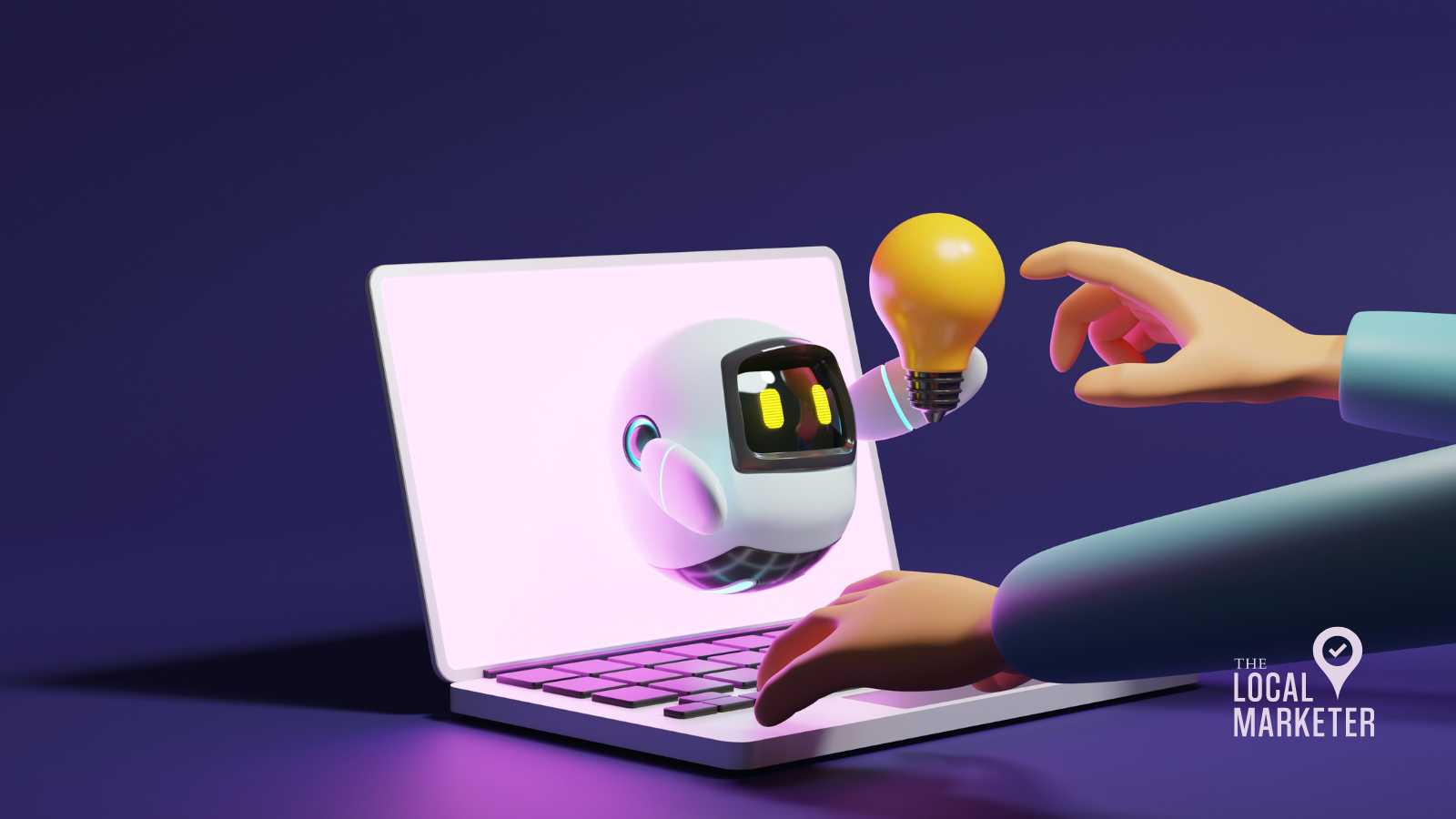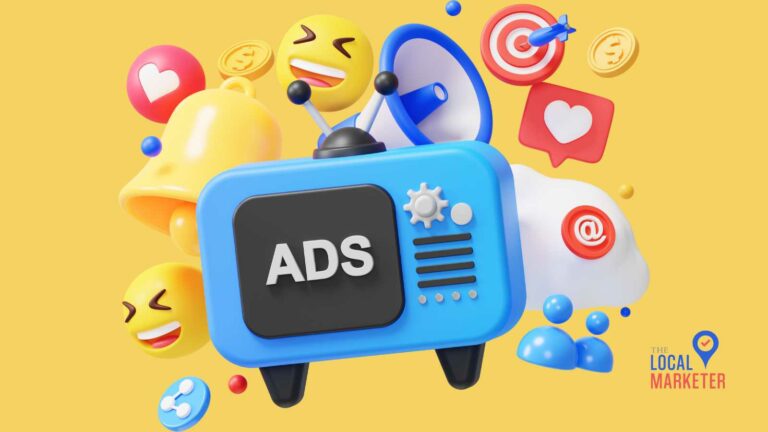How to Use AI for Small Business Marketing
Small businesses are harnessing the power of artificial intelligence to revolutionize marketing, but with so many strategies available, it can be daunting to know where to start. We’ve gathered insights from marketing managers to founders, sharing their most effective tactics. From implementing AI Chatbots for enhanced customer engagement to brainstorming with AI language models, explore these thirteen diverse strategies to leverage AI in your marketing efforts.
Implement AI Chatbots for Customer Engagement
I find AI chatbots particularly effective for small businesses due to their ability to provide consistent, accurate information to customers, thereby improving the overall customer experience. In today’s fast-paced digital world, consumers expect quick and reliable answers to their questions. AI chatbots meet these expectations head-on, offering immediate assistance and thereby increasing customer satisfaction and loyalty.
Additionally, the data collected by chatbots can provide valuable insights into customer behavior and preferences, helping businesses to tailor their marketing strategies more effectively. Implementing AI chatbots is a strategic move that leverages the latest in technology to streamline operations and enhance customer engagement, making it a smart choice for small businesses looking to stay competitive and responsive in the digital age.
Blake Smith, Marketing Manager, ClockOn

Start Small with AI Integration
One approach to effectively using AI in small-business marketing is to start small. It’s not a good idea to go all-in with your first AI integration in marketing. You need to test, refine, and experiment with various options to achieve the best return on investment from your AI tool.
The thing is, not every AI tool suits every business. Each tool has its specific use cases, and it’s rare to find one that addresses all your marketing needs. So, you should be selective and incorporate AI gradually.
Start by using AI technologies to address your most pressing challenges. The reason to be gradual with AI in marketing efforts is that it allows you to adapt to the technology without overwhelming your team or resources. Gradual implementation helps in understanding the AI’s impact on your specific marketing strategies. It also allows for tweaking and customizing AI solutions to better fit your business’ unique needs and goals.
Going step by step minimizes risks and helps in making more informed decisions about further AI integration in your marketing plans.
Lucas Ochoa, Founder & CEO, Automat

Test AI Tools for Practical Fit
Make an informed decision based on practical usage and not merely on advertised features. One essential strategy is the thorough testing of AI tools to ensure they fit the specific needs of your small business.
Rigorous testing not only helps in understanding the tool’s capabilities but also reveals how it stacks up against competitors. This comparative analysis is crucial, as it can highlight unique features that may give a competitive edge or show cost-effectiveness that aligns with smaller marketing budgets. Thus, dedicating time to intensive testing and comparison can lead to a more informed decision, ultimately leveraging AI to its fullest potential in your marketing initiatives.
For instance, when we were in search of a PR AI tool, we prioritized attending various demos and rigorously compared them against each other. We also made sure to utilize free trial offers to thoroughly test each tool’s integration with our existing processes. This hands-on experience was invaluable in discerning which AI solution complemented our workflow, team dynamic, and business goals, allowing us to make an informed decision based on practical usage and not merely on advertised features.
Tristan Harris, Demand Generation Senior Marketing Manager, Thrive Digital Marketing Agency

Choose the Right AI Framework
The first step is to pick the right AI framework and look into different AI options. It’s really important to choose the right AI framework.
Small businesses need to think about whether they should go for basic tools that automate tasks or more advanced applications that use machine learning. This choice depends on the size of the business, the amount of money they have, and the scale of their operations. It’s crucial to research and compare various AI solutions to find the ones that best suit the business.
Marketers need to find AI tools that integrate well with the systems they already have and provide the features and capabilities they need to achieve their goals.
Patrick Beltran, Marketing Director, Ardoz Digital

Optimize Website UX
If you’re stuck on the thinking that only big corporations and top marketing firms have access to AI-driven marketing, then you’re wrong. AI is accessible to any business working on a small scale, and it actually levels the playing field for us. Not many will realize, but AI can be the biggest asset when it comes to small business marketing, and help the business owners compete with their giant counterparts.
AI for optimizing web copies and scaling email marketing is what everybody is doing. However, you should take steps that no one else is thinking about. I’m suggesting you use AI to optimize your website’s UX, making it better and more efficient in the long run. Everybody knows the need to have a great website interface, and AI tools are capable of scanning and making your website better for you. You probably won’t need to spend thousands on developers if your needs are not huge.
AI software can simply tell where users click more often on your page, and which section gets the highest reading time so you can chop and change accordingly. On-demand accessibility tools (like auto-generated captions) are provided as well to make the viewer’s visit to your website convenient and a pleasant experience.
Stefan Campbell, Owner, The Small Business Blog

Predict Customer Behavior
From my experience in driving e-commerce growth at First Pier, one effective strategy for leveraging AI in small business marketing efforts centers on employing AI for predictive customer behavior analysis. This method uses AI to examine customer data, understand patterns, and predict future purchasing behaviors. It’s effective because it enables personalized marketing strategies that resonate with each individual’s needs and preferences, increasing engagement and conversion rates significantly.
For example, we implemented AI-driven analytics for a retail client looking to optimize their online store for increased sales. By analyzing customer purchase history, browsing behavior, and product preferences, the AI model was able to predict the types of products customers were likely to buy in the future. This insight allowed us to create highly targeted email marketing campaigns that suggested products tailored to each customer’s individual tastes and previous shopping behavior. The result was a 40% increase in email click-through rates and a significant boost in sales.
Furthermore, AI can revolutionize inventory management, a crucial aspect often overlooked in marketing discussions. By predicting future product demands accurately, businesses can ensure they have the right stock levels to meet customer expectations without overstocking. This not only reduces operational costs but also improves customer satisfaction, as popular products are less likely to run out of stock.
Another area where AI brings substantial benefits is in optimizing marketing spend across various channels. Utilizing AI, we’ve managed to analyze the effectiveness of different marketing channels for various clients, reallocating budgets to those providing the highest ROI. This smart allocation of resources ensures that every dollar spent contributes to business growth, showcasing AI’s capability not just in predicting customer behavior but also in streamlining business operations for maximum efficiency and effectiveness.
Leveraging AI within a strategic framework can transform small business marketing, making campaigns more personalized, efficient, and effective. The key is to start with a specific goal, such as increasing sales or improving customer retention rates, and then employ AI to uncover insights that drive you towards that goal.
Steve Pogson, Founder, First Pier

Personalize Customer Experiences
Drawing from my entrepreneurial background, especially in harnessing AI for digital marketing, I’ve found that personalizing customer experiences is a game-changer. By utilizing AI to analyze customer data and behavior, we’ve been able to create highly targeted marketing campaigns.
This approach not only boosts engagement by delivering content that resonates with each segment of our audience but also significantly improves ROI by focusing resources on high-conversion strategies. It’s effective because it treats customers as individuals, enhancing their journey with your brand, which is crucial for small businesses aiming to stand out in a crowded market.
Ryan Doser, Co-Founder, AI Insider Tips

Combine AI with Human Insight
One powerful approach to maximizing AI in small-business marketing is integrating it harmoniously with the human touch and intellect. While AI can efficiently analyze data, identify patterns, and automate certain tasks, it thrives when complemented by the emotional intelligence and creative thinking of humans.
By combining the precision of AI with the nuanced understanding and empathy of human marketers, businesses can create a dynamic synergy. This strategy can enhance the personalization of marketing efforts and ensure a more authentic and relatable connection with the audience.
Johannes Larsson, Founder and CEO, JohannesLarsson.com

Employ AI for Personalized Marketing
Personalization is one of the most effective strategies for leveraging AI in small-business marketing efforts. This involves using data and algorithms to tailor marketing messages and content specifically for individual customers or target audiences.
By doing so, businesses can create a more personalized and relevant experience for their customers, leading to increased engagement, conversions, and customer loyalty. Personalization enables businesses to better understand and anticipate their customers’ needs, preferences, and behaviors.
By utilizing AI technology, businesses can collect and analyze large amounts of customer data from various sources, such as social media, website interactions, and purchase history. This allows them to create highly targeted marketing campaigns that resonate with their target audience on a deeper level. As a result, businesses can see a significant increase in customer satisfaction, brand loyalty, and ultimately, sales.
John McDougall, President & CEO, McDougall Interactive

Enhance Local SEO
From my foundation as a content creator and SEO expert, particularly through my agency, That Local Pack, I’ve discovered that one of the most potent ways to leverage AI in small business marketing is by improving local SEO efforts through AI-powered content analysis and optimization. This methodology is both effective and crucial because the local digital landscape is fiercely competitive. By deploying AI to analyze search trends and user behavior within specific locales, businesses can craft content that precisely aligns with the interests and queries of their target audience, hence improving their search rankings and online visibility significantly.
In my journey, employing AI for deeper keyword research has been particularly impactful. For example, by using AI-driven tools to sift through vast amounts of data, we were able to pinpoint not just high-volume keywords but also long-tail phrases specific to local searches that our competitors hadn’t capitalized on. This approach led to a noticeable improvement in our clients’ search engine rankings, driving more organic traffic to their sites without the need for extensive ad spend. The AI’s ability to process linguistic nuances and understand semantic search trends allowed us to optimize content in a way that resonated more profoundly with local audiences, leading to better engagement and conversion rates.
Furthermore, AI has proven invaluable in enhancing the user experience on the websites we manage. Through AI analysis of visitor interactions, we’ve been able to identify content gaps and areas where users sought more information, leading to the development of more comprehensive, user-centered content strategies. This directly improved website dwell time and reduced bounce rates, which are critical factors in search engine rankings. Additionally, by automating monotony such as analyzing bounce rates and user flow on a website, AI allowed us more time to focus on creative and strategic efforts, embodying the blend of technology and human creativity that is at the heart of effective digital marketing.
These experiences underscore the powerful role AI can play in elevating small business marketing by making it more data-driven, efficient, and attuned to the specific needs of a local audience. The key lies in using AI not as a replacement for human insight but as a tool that augments our understanding of consumer behavior, enabling businesses to tailor their online presence to meet the nuanced demands of their local market.
Ken Fortney, Founder, That Local Pack

Boost Revenue with AI Email Marketing
Use AI for email marketing. Sixty percent of consumers make a purchase influenced by receiving a marketing email. For every dollar you spend on a marketing email, you generate, on average, $42, which makes it worth a try. Small businesses can use AI to monitor the efficiency of subject lines and analyze email open rates, among other metrics. Concert.ua is a Ukrainian business that we helped to achieve 4.8 times more channel revenue through email marketing.
We set our AI algorithm to look into subscriber behavior, detect patterns, and predict preferences. These insights guided our email content and ensured our emails reached the audience at the right time with the right message. We also automated A/B testing of email subject lines to tweak our approach based on the results to ensure our subscribers received compelling content.
Email personalization, according to subscriber segments, created a personalized and impactful marketing campaign. The campaign tripled Concert.ua’s new users compared to the previous year, proving its effectiveness.
Valerie Lavska, CMO, Promodo

Create AI-Generated Video Content
Video is, without a doubt, one of the best forms of online marketing, and it’s showing no signs of abating. In 2024, 88% of people would like to see more video content from brands—not less (Wyzowl, 2023). Therefore, it is imperative that businesses and brands generate video content as a core part of their marketing strategy.
However, video production and marketing are time-consuming, expensive, highly logistical, and should really be a creative endeavor. This is not something easily balanced with running a small business. However, AI is changing this landscape and making video production more accessible.
A useful tool for small businesses is the Synthesia platform. Synthesia can generate realistic human avatars and presenters who can read your script in an e-learning style. All you need to do is write some copy. This provides the opportunity to create a wealth of thought-leadership and informational video content that will interest and engage audiences—without the costs and logistics.
Ryan Stone, Founder & Creative Director, Lambda Films London

Brainstorm with AI Language Models
A fantastic use of AI tools is to brainstorm ideas and language. Large language models are great at providing a variety of ways to represent an idea. What are frequently asked questions on a topic or service? What is another way to say this? What would people with little experience in this area be confused about?
While there is no substitute for real personal interaction with customers and partners to understand the market and ways to better connect with customers, AI tools provide good ways to flesh out your ideas and thoughts.
Keith Evans, Founder, Keith Evans Photography

Conclusion
Using AI in your small business marketing is now normal. Just like using social media, the technology is now here and it’s up to you to see how to use Artificial Intelligence for small business marketing and help grow your business.







